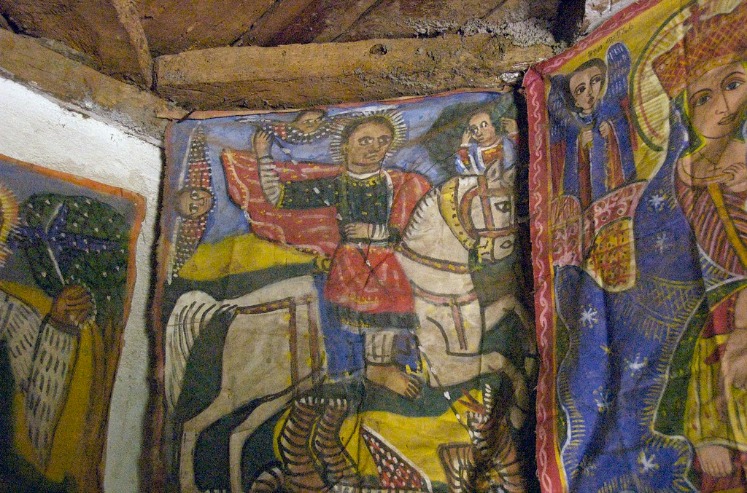Historical Background of Ethiopia’s Date Celebrations
The historical background of Ethiopia’s date celebrations is deeply rooted in the nation’s rich cultural and religious traditions. These special occasions often commemorate significant events in Ethiopian history, from ancient times to modern achievements. Over the centuries, these celebrations have evolved, reflecting the country’s diverse heritage and its people’s enduring identity. Understanding the origins of these festivities provides valuable insight into Ethiopia’s unique historical narrative and cultural pride.
Ancient Calendrical Systems in Ethiopia
Ethiopia has a rich historical background when it comes to its date celebrations, deeply rooted in its ancient cultural and religious traditions. The country traditionally observes its own unique calendar system, which differs significantly from the Gregorian calendar used internationally. This ancient calendrical system has shaped the way Ethiopians mark time and celebrate important events, holidays, and religious festivals.
Historically, Ethiopia utilized a version of the Coptic calendar, which is based on the ancient Alexandrian calendar that traces back to the early Christian centuries. This calendar consists of twelve months of 30 days each, with a thirteenth month called Pagumē, which has either five or six days depending on whether it is a leap year. The Ethiopian calendar is approximately seven to eight years behind the Gregorian calendar and is marked by its own set of religious and national holidays, many of which are linked to Ethiopian Orthodox Christianity.
Ancient calendrical systems in Ethiopia also included calculations related to astronomical observations and agricultural cycles, which were vital in determining the timing of festivals such as Timket (Epiphany) and Meskel (Finding of the True Cross). These celebrations often follow the traditional calendar dates, which can differ from those calculated by the Gregorian system, reflecting Ethiopia’s unique historical and cultural identity.
Overall, Ethiopia’s date celebrations are a testament to its rich historical and religious heritage, maintaining traditions that date back centuries and continuing to play an important role in Ethiopian society today.
Historical Significance of Specific Dates
Ethiopia’s date celebrations are deeply rooted in its rich history and cultural heritage, reflecting significant events that shaped the nation’s identity. These celebrations often commemorate important milestones such as independence, religious festivals, and historical victories, highlighting Ethiopia’s unique calendar and chronological significance. Traditional calendars and historical dates play a vital role in fostering national pride and preserving cultural continuity, linking present generations to their ancestors and historical achievements.
One of the most prominent dates in Ethiopia’s history is Enkutatash, the Ethiopian New Year, celebrated on September 11th (or September 12th in leap years). This date coincides with the end of the rainy season and the return of Queen of Sheba from her visit to King Solomon, symbolizing renewal and hope. Timket, the Ethiopian Epiphany, is celebrated on January 19th, commemorating the baptism of Jesus Christ and marking a significant religious and historical occasion that emphasizes the nation’s deep Christian roots.
Additionally, May 28th marks the Ethiopian Victory of Adwa, celebrating Ethiopia’s historic victory over Italian colonizers in 1896. This event is a symbol of national sovereignty and resistance, celebrated nationwide as a reminder of Ethiopia’s resilience and independence. These dates, among others, serve to reinforce Ethiopia’s national identity and historical consciousness, connecting the people to their storied past and cultural traditions.
Evolution of Date Commemoration Over Centuries
The historical background of Ethiopia’s date celebrations is deeply rooted in the country’s rich cultural and religious traditions. These celebrations often commemorate significant events, religious milestones, and historical victories that have shaped Ethiopia’s national identity. Over the centuries, the way these dates have been observed has evolved, reflecting changes in societal structures, religious practices, and political influences. Initially, many celebrations were purely religious, centered around Orthodox Christian holidays and saints’ feast days, which remain integral to Ethiopian culture. As the nation experienced periods of reform and modernization, the observance of these dates expanded to include national ceremonies, cultural festivals, and public commemorations. This evolution mirrors Ethiopia’s journey from a largely agrarian society to a modern nation, blending ancient customs with contemporary practices. Today, Ethiopia’s date celebrations serve both as a remembrance of its historical struggles and triumphs and as an expression of national unity and cultural pride, showcasing a dynamic interplay between tradition and modernity that has developed over centuries.
Major National Dates in Ethiopia
Ethiopia, a country rich in history and culture, celebrates numerous major national dates that mark significant events, traditions, and milestones in its heritage. These dates serve as a reflection of Ethiopia’s unique identity and historical resilience, fostering a sense of unity and pride among its people. Understanding these important days offers insight into the country’s diverse cultural landscape and historical journey.
Enkutatash (Ethiopian New Year)
Enkutatash, also known as Ethiopian New Year, is a major national celebration in Ethiopia that marks the start of the new year according to the Ethiopian calendar. It usually falls on September 11th, except in leap years when it is celebrated on September 12th. This important holiday is a time for Ethiopians to celebrate new beginnings, cultural heritage, and religious traditions.
- Enkutatash (Ethiopian New Year) – September 11th or 12th (in leap years)
- Timket (Epiphany) – January 19th
- Adwa Victory Day – March 2nd
- Victory of Adwa Celebrations – March 2nd
- Ethiopian Genna (Christmas) – January 7th
- Meskel – September 27th
Meskel (Finding of the True Cross)
In Ethiopia, Meskel, also known as the Finding of the True Cross, is a major national holiday celebrated every year on September 27th (or September 28th in a leap year). It is one of the most significant religious and cultural events in the country, marking the discovery of the True Cross by Queen Helena in the 4th century. The celebration involves vibrant processions, the lighting of large bonfires called ‘Demera,’ and rituals that symbolize faith and unity among Ethiopians. Meskel is a public holiday, reflecting its importance in Ethiopia’s religious calendar and national identity.
Timket (Epiphany Celebration)
Major national dates in Ethiopia are significant events that hold cultural, religious, and historical importance for the country. Among these, Timket, also known as Epiphany, is one of the most celebrated religious festivals. It marks the baptism of Jesus Christ in the Jordan River and is observed annually on January 19th in the Gregorian calendar, corresponding to January 20th in a leap year. The celebration is characterized by vibrant processions, church rituals, and public festivities, especially in the capital city, Addis Ababa, and in Lalibela. Timket is a time for Ethiopians to reaffirm their faith, celebrate their heritage, and participate in community gatherings that showcase their rich religious traditions and cultural identity. It is a key highlight on Ethiopia’s calendar of national and religious events, reflecting the deep-rooted Christian heritage of the nation.
Adwa Victory Day
Major national dates in Ethiopia hold significant historical and cultural importance, reflecting the country’s rich heritage. Among these, Adwa Victory Day, celebrated on March 2nd, commemorates Ethiopia’s remarkable victory over Italian colonial forces at the Battle of Adwa in 1896. This day symbolizes Ethiopian sovereignty and resistance against colonization, fostering national pride and unity among Ethiopians. Other key dates include Ethiopian New Year, celebrated on September 11th, marking the start of the Ethiopian calendar year, and Enkutatash, the festival of the Ethiopian New Year. These dates collectively highlight Ethiopia’s unique history, cultural traditions, and the resilience of its people.
National Millennium Celebrations
Ethiopia, a country rich in history and culture, celebrates several major national dates that highlight its heritage and milestones. Among these, Enkutatash, the Ethiopian New Year, is widely celebrated on September 11th (or September 12th in leap years), marking the beginning of the new year in the Ethiopian calendar. Another significant date is Fasika, the Ethiopian Easter, which varies each year based on the Julian calendar but remains an important religious celebration. Independence Day on May 28th commemorates Ethiopia’s liberation from Italian occupation in 1941 and is marked with patriotic events nationwide.
The Ethiopian Millennium, also known as the “Rastafari Millennium,” was celebrated on September 11, 2007, marking 1,000 years since the founding of the Ethiopian calendar in 9th century AD. This celebration was a major event, attended by thousands, including leaders and dignitaries from around the world, symbolizing Ethiopia’s ancient heritage. The millennium celebrations included cultural performances, religious ceremonies, and reflections on Ethiopia’s historical significance as one of the oldest countries with its own unique calendar system.

Cultural and Religious Significance of Dates
Dates hold profound cultural and religious significance in Ethiopia, serving as symbols of heritage, tradition, and spiritual observance. They mark important festivals, national events, and religious holidays that unite communities and preserve their rich history. Understanding the role of these dates offers insight into Ethiopia’s diverse cultural landscape and its deep-rooted faith practices.
Religious Observances and Rituals
The cultural and religious significance of dates, observances, and rituals in Ethiopia is deeply rooted in the country’s rich history and diverse heritage. Ethiopian society celebrates numerous religious festivals and traditional ceremonies that reflect its unique spiritual landscape. Key dates such as Ethiopian New Year (Enkutatash), Timket (Epiphany), and Meskel (Finding of the True Cross) are not only important religious events but also communal gatherings that reinforce cultural identity. These occasions often involve elaborate rituals, processions, fasting, and prayers, highlighting the central role of religion in daily life. Celebrations are characterized by vibrant music, dance, traditional attire, and special foods, serving as a means to preserve their cultural legacy across generations. Overall, these dates and rituals embody Ethiopia’s spiritual diversity and its enduring commitment to religious traditions, fostering unity and cultural pride within the nation.
Traditional Festivities and Customs
Dates in Ethiopia hold profound cultural and religious significance, reflecting the diverse traditions and history of the nation. They serve as a foundation for numerous traditional festivities and customs that are celebrated with enthusiasm and reverence throughout the country.
- Timket (Epiphany): Celebrated on January 19th, Timket is a major religious festival commemorating the baptism of Jesus Christ. It involves elaborate church ceremonies, processions with icon decorations, and the sprinkling of holy water, symbolizing purification.
- Mehir (Ethiopian New Year): Observed on September 11th (or September 12th in a leap year), Mehir marks the start of the Ethiopian calendar year. It is celebrated with church services, family gatherings, and traditional music and dance.
- Enkutatash: Falling on September 11th or 12th, Enkutatash coincides with the New Year and features floral decorations, gift exchanges, and feasting, symbolizing renewal and hope.
- Gena (Ethiopian Christmas): Celebrated on January 7th, Gena is marked by church prayers, processions, and festive meals, highlighting the country’s Christian heritage.
- Meskel: Held on September 27th or 28th, Meskel commemorates the discovery of the True Cross by Queen Helena. It involves the lighting of large bonfires called Demera, which symbolize the Holy Fire, accompanied by singing, dancing, and social gatherings.
Symbols and Attire Associated with Celebrations
In Ethiopia, dates, symbols, and attire associated with celebrations hold deep cultural and religious significance, reflecting the country’s rich heritage and spiritual beliefs. These elements serve as a way to honor traditions, religious doctrines, and historical events, fostering a sense of identity and community among Ethiopians.
- Religious Significance: Many Ethiopian celebrations are rooted in the Ethiopian Orthodox Tewahedo Church, where specific dates are marked for saints’ feast days and religious festivals like Timket and Fasika. These dates are considered sacred and are observed with rituals, processions, and prayers.
- Symbols: Symbols such as the cross, religious icons, and Ethiopian flags are prominently displayed during festivities to express faith and national pride. For example, the cross is a central symbol in religious processions, signifying salvation and spiritual life.
- Attire: Traditional clothing, including the white cotton dress called “habesha kemis” for women and embroidered shirts for men, are worn during important celebrations to honor cultural heritage and religious customs. These attires often feature intricate designs symbolizing identity and respect for tradition.
- Mireba: The use of specific colors in clothing and decorations during holidays, such as white for purity and red for sacrifice, underscores the religious and cultural values associated with these dates.
- Festive Foods: Celebratory foods and beverages prepared during religious festivals also carry symbolic meanings linked to fertility, blessings, and community unity.
Contemporary Observance of Dates in Ethiopia
Contemporary observance of dates in Ethiopia reflects a unique blend of cultural, religious, and historical traditions. The country’s calendar system, which differs from the Gregorian calendar, influences how various events and holidays are celebrated. Understanding these date observances provides insight into Ethiopia’s rich cultural heritage and spiritual practices, highlighting the significance of traditional and modern celebrations in Ethiopian society.
National Holidays and Public Celebrations
The contemporary observance of dates in Ethiopia reflects a rich blend of cultural, religious, and national traditions that are celebrated throughout the year. Ethiopian holidays often align with religious events of the Ethiopian Orthodox Tewahedo Church, as well as historical commemorations that honor the country’s heritage and independence.
National holidays in Ethiopia include Enkutatash, the Ethiopian New Year celebrated in September, marking the end of the rainy season and the beginning of a new year according to the Ethiopian calendar. Timket, the Epiphany, is another major religious holiday celebrated with vibrant processions and rituals, commemorating the baptism of Jesus Christ. Patriots’ Victory Day on May 5 honors those who fought for Ethiopia’s sovereignty, while Labor Day on May 1 recognizes workers’ contributions to the nation.
Public celebrations in Ethiopia are characterized by colorful festivals, traditional music and dance, religious ceremonies, and community gatherings. These events are often marked by elaborate processions, feasts, and the display of cultural attire, fostering a sense of national pride and unity. The Ethiopian calendar’s unique structure, with its 13 months and different New Year date, also influences how dates are observed and celebrated locally, highlighting the country’s distinctive cultural identity.
Role of Media and Community Participation
Contemporary observance of dates in Ethiopia plays a significant role in maintaining cultural heritage and fostering community cohesion. The Ethiopian calendar, which is approximately seven years behind the Gregorian calendar, influences how dates are celebrated and recognized nationally. Major religious and national holidays, such as Enkut demeket and Ethiopian New Year, are celebrated with various traditional and modern practices that reflect the country’s rich history. The role of media in Ethiopia is crucial in promoting awareness and understanding of these dates, ensuring that celebrations are well-organized and widely known across different regions. Media outlets, including radio, television, and social media platforms, serve as vital channels for broadcasting event details and educational content about the significance of these dates. Community participation is equally important, as it enhances collective identity and encourages active involvement in festivities, rituals, and cultural activities. Through communal efforts, Ethiopia preserves its unique cultural calendar while adapting to contemporary times, ensuring these important dates are honored and passed down through generations.
Government Initiatives and Commemorative Events
The contemporary observance of dates in Ethiopia reflects a rich cultural heritage and a commitment to national history. The country maintains its unique calendar system, which differs from the Gregorian calendar, and this influences the way dates are celebrated and commemorated. Ethiopian government initiatives play a significant role in promoting awareness and remembrance of key historical events and national holidays. These include official public holidays such as Ethiopian New Year, Meskel, and Timket, which are marked with vibrant celebrations, religious ceremonies, and cultural activities. Additionally, Ethiopia observes several commemorative events dedicated to honoring prominent figures, historical milestones, and anniversaries that shape its national identity. Efforts to preserve and promote Ethiopia’s diverse traditions and history continue to be an integral part of its contemporary social and political landscape.
Impact of Ethiopian Dates on Society and Economy
The Ethiopian date industry holds a significant place in the country’s society and economy, serving as both a cultural staple and a vital agricultural sector. Dates cultivated in Ethiopia are cherished for their nutritional value and traditional significance, contributing to community livelihoods and food security. Economically, the export of Ethiopian dates fosters international trade, boosts rural incomes, and promotes agricultural development. Overall, dates in Ethiopia are more than just a fruit; they are a crucial element supporting societal well-being and economic stability.
Tourism Boost During Celebratory Periods
The cultivation and celebration of Ethiopian dates have a significant impact on the society and economy of the region. Dates are not only a staple food product but also an important cultural symbol, fostering community cohesion and traditional festivities. The harvest season attracts local markets and enhances social interactions, strengthening community bonds and cultural identity.
Economically, the date industry contributes substantially to local livelihoods through farming, processing, and marketing. The export of Ethiopian dates boosts foreign currency earnings and encourages investment in agricultural infrastructure. Additionally, the popularity of dates in international markets promotes sustainable economic growth and development in date-growing regions.
During celebratory periods such as religious festivals and national holidays, Ethiopia experiences a tourism surge as visitors come to witness traditional harvest celebrations and cultural festivities associated with dates. This influx of tourists stimulates hospitality, transportation, and retail sectors, providing a vital boost to the local economy and raising the country’s profile as a cultural destination.
Economic Activities and Market Trends
The impact of Ethiopian dates on society and the economy is significant, as dates are a vital agricultural product contributing to both local livelihoods and national income. These dates serve as a cultural staple and are integral to traditional practices, festivals, and daily diets in Ethiopia. Economically, the cultivation and export of dates create employment opportunities in farming, processing, and marketing sectors, fostering rural development and reducing poverty. The growth of the date industry also attracts investments and promotes regional development, especially in date-producing regions such as the Afar and Oromia zones.
Economic activities related to Ethiopian dates encompass cultivation, harvesting, processing, and export. Farmers engaged in date farming benefit from consistent demand both locally and internationally, which supports income stability and rural economic growth. The market trends indicate increased demand for high-quality dates in global markets, encouraging producers to adopt improved techniques and expand production capacities. This surge in demand has led to the development of better supply chains, packaging methods, and branding efforts to position Ethiopian dates competitively in international markets, further boosting the country’s economy and supporting sustainable agricultural practices.
Social Cohesion and National Identity
The impact of Ethiopian dates on society and economy is profound, serving as a vital agricultural product that supports livelihoods across the country. These dates contribute significantly to local and national economies through both domestic consumption and exports, fostering rural development and economic stability. Socially, the cultivation and harvesting of dates strengthen community bonds, as traditional practices and collective efforts play a central role in their production. Moreover, dates hold cultural and religious significance in Ethiopia, particularly during festivals and religious occasions, which reinforces social cohesion. On a broader scale, dates have become a symbol of Ethiopian heritage and identity, fostering pride and unity among its people. The preservation and promotion of date farming also support national branding efforts, showcasing Ethiopia’s agricultural richness on the global stage, thereby enhancing national identity and cultural pride.





0 Comments